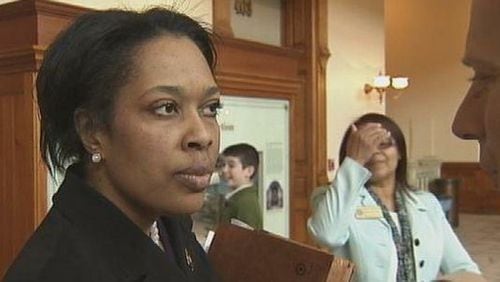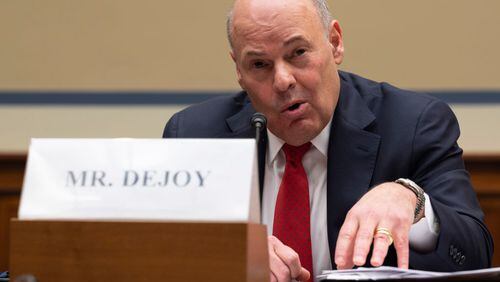AJC watchdog coverage
In March, 2012, The Atlanta Journal-Constitution reported that Tonya Boga, the state child advocate, was held to be ineffectual by many in the child welfare field. In a series of exclusive reports this year, the AJC has documented epic failings in the state’s child protection system.
Georgia’s child advocate, Tonya Boga, criticized by some child protection professionals as a weak watchdog over the state’s child welfare system, has resigned. Her departure comes amid scrutiny of the state’s role in failing to prevent the recent deaths of two children despite warnings that they were at risk.
A spokesman for Gov. Nathan Deal, who appoints the child advocate, said in a written statement Tuesday that Deal plans to improve the Office of Child Advocate.
“The governor will work with his new appointee on steps we can take with that office to do an even better job of protecting children in this state,” the statement said. It provided no details, and Deal’s office did not respond to a request for additional information.
Boga, who was appointed by Deal, departed a month shy of completing her three-year term. Deal had the option to re-appoint her.
She could not be reached for comment Tuesday, but an employee in her office said she left to pursue other ventures. An interim replacement, the governor’s deputy counsel Thomas Worthy, took over a few days ago.
Boga’s tenure as the head of the state Office of the Child Advocate drew both praise and blame.
Some previous appointees had been outspoken in assessing missteps by the Division of Family and Children Services, the agency charged with protecting abused and neglected children. But Boga assumed a far lower profile.
Those who believe the office must be a bully pulpit fault her for making no public outcry when mistakes by DFCS contributed to children’s deaths. They also say she failed to engage with professionals in the field.
“I didn’t notice that she did anything,” said Bartow County Juvenile Court Judge Velma Tilley. “It didn’t come to my attention that the job was effective during her tenure.”
Normer Adams, the former executive director of a trade group for private foster homes, called Boga “the most inactive and invisible child advocate we’ve had.”
Adams, who served in the child welfare community for 20 years, said he rarely saw Boga at public meetings.
“She never called anybody out,” he said. “And there’s certainly lots of things in the child welfare system to call out.”
But Boga also earned praise from other child welfare leaders, who saw her less aggressive style as more effective.
“She was different,” said Douglas County Juvenile Court Judge Peggy Walker. “She was collaborative, not confrontational.”
Ron Scroggy, the former DFCS director, said that when he began his tenure as the agency head, he expected the child advocate to take an adversarial posture.
But he found Boga more collegial. Her approach, he said, earned her greater access to the workings of the agency.
“I considered her an objective set of eyes and ears looking over our shoulder, giving us feedback on what’s good and what needs improving,” Scroggy said.
Boga leaves the office with the state facing a barrage of questions over the deaths of two children. The child advocate’s office has not been implicated in those two cases, but the deaths of Emani Moss and Eric Forbes have cast doubt on how well Georgia safeguards vulnerable children.
DFCS dismissed a report last year that Moss had been beaten with a belt. The agency did not send caseworkers to interview the girl. She was recently found starved to death, and her father and stepmother have been charged with murder.
Forbes was allegedly killed by his father in October following four reports of suspected abuse to the Cobb County DFCS office.
Their deaths prompted Deal to propose spending $27 million over three years to hire 525 new child protection workers.
The Office of Child Advocate was born of crisis in 2000 after the death of 5-year-old Terrell Peterson. He died even though his family had been reported eight times to DFCS for suspected abuse or neglect.
The first child advocate, attorney Dee Simms, shook up the child welfare system, issuing scathing audits of DFCS offices. But her public battles with the agency and the governor’s office led Gov. Sonny Perdue to replace her in 2007. Her successor, Tom Rawlings, a juvenile court judge, helped rebuild the damaged relationship with DFCS while continuing to serve as a tough critic of the system.
Several longtime professionals in child welfare say the office should be made more independent from political pressure.
“It should not be a gubernatorial appointee,” said Adams. “But that would require changing the law.”
About the Author







